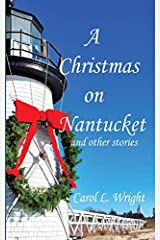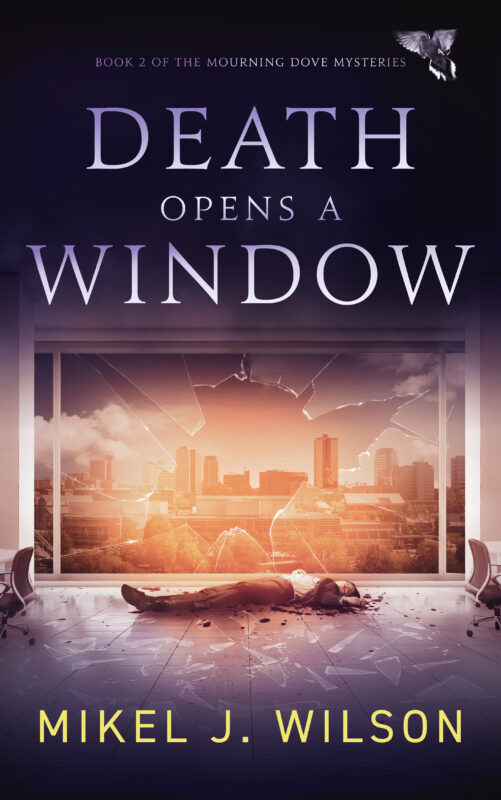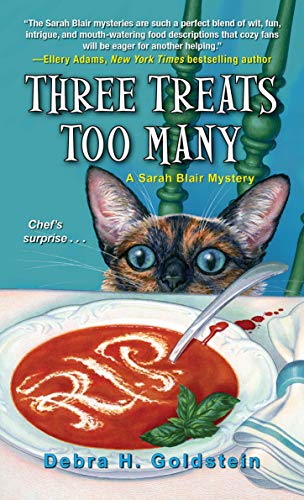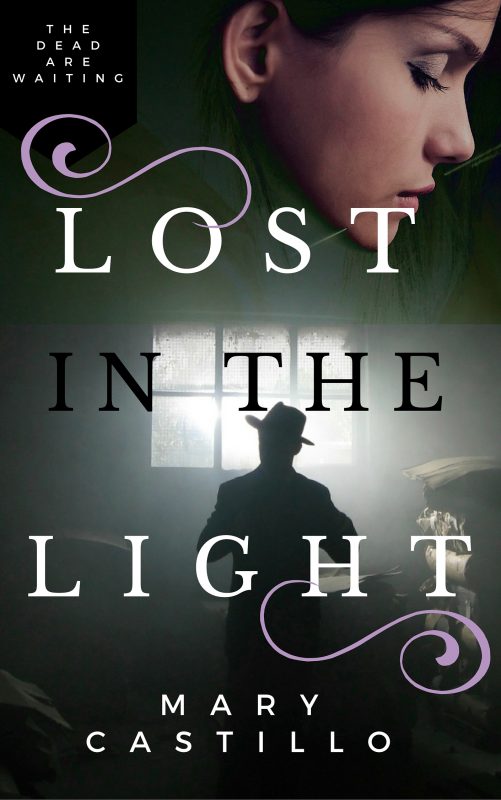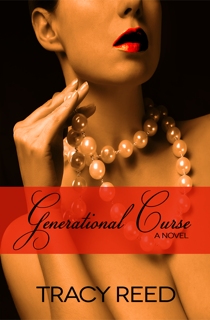In The Zone
April 25, 2024 by Kidd Wadsworth in category Infused with Meaning by Kidd Wadsworth, Writing tagged as characters, happy writing, in the writing zone, kidd wadsworth, techniques
You’ve been there. Writing as fast as you can type, scared that you won’t be able to get all that fantastic dialogue currently flooding your mind, down on the paper before it slips away. You are IN THE ZONE.
I remember a summer day when I was writing in my dining room, every word an effort, the scene falling flat. I’d been at it for hours. I kept thinking, “If I just sit here and keep working it will come.” Eventually, I got up, went into the kitchen and began washing dishes. That’s when I saw him. He darted around the corner. Then I heard him speaking in my mind, as clear as if he was standing next to me. I dried my hands and returned to write one of the best chapters I’ve ever created, personally dictated to me, by a wonderful little boy—my protagonist.
But how do I get into the zone reliably, every day?
Truthfully, I don’t get in the zone every day. But I do get there often. Here are my two best strategies.
First, I speak—out loud—with the voice of my character. When my character is sad, I cry. When she is angry, I rage at full volume. When she is lonely, I ache. When she is afraid, I run for my life—literally. I run through the house, up the stairs, and hide in the closet. I feel what my character feels, I do—as much as possible—what my character would do. I become her.
Once I woke in the night. Earlier that day I had been crafting a short story about a young woman who was hunted by a demon. As I typed the scene I had just dreamed, I began to see moving shadows in the dark room. I hadn’t turned on any lights because I didn’t want to wake my husband. As I worked, the fear within me built to such a level that my trembling fingers kept typing the wrong letters. When I finally got the last words down, I hurriedly fled back to bed and woke my husband. “Tell me it’s not real,” I said. He put his arms around me. “Have you been writing again?”
When the zone happens, I typically write in first person regardless of the POV the story eventually will have. I do this to capture the character and the emotions I am feeling. Once down on the page I can easily shift into another POV.
My second technique is music—and dancing. I deliberately chose a piece of music to play when I begin a new story. Whenever I open that file on my computer, I also play the music. This helps me ground myself in the world of my character. However, music alone is typically not enough to get me in the zone. I must also dance—the wilder the better.
Happy Writing!
Kidd Wadsworth
2 1 Read moreCreating a Writing Journal by Kidd Wadsworth
February 25, 2024 by Kidd Wadsworth in category Infused with Meaning by Kidd Wadsworth tagged as Buio, Journaling, kidd wadsworth, Writing journal, YouTube
Creating a Writing Journal
I wanted to stop forgetting appointments and lunches with friends. I wanted to keep track of events days, weeks, months and even years into the future. After 18 months of watching YouTube videos, I discovered a minimalist system that has worked well for me. I’ve been bullet journaling (called Bujo on YouTube) for two years now. It has revolutionized and simplified my life.
The must dos for creating a personal journal are fairly simple:
- The first one to three pages should be an index. It doesn’t have to be fancy. For example:
p.6 January Brain Dump. - Since I create my journal from a blank, spiral bound, notebook (dotted pages), I draw in my own calendars. Each of my journals lasts me about 6 months. Thus, I draw six monthly calendars. I use two facing pages for each month, so the calendars are large enough to hold important events such as dentist appointments or writing dates with my creative buds.
- Immediately following the monthly calendar pages, I use two facing pages to keep track of events that are scheduled more than 6 months out.
- For each month I also create a Brain Dump page. On this page I write all of things I want to remember as they come along. For example, replace the whole house water filter or order a book from interlibrary loan.
- Finally, every week on Saturday evening, I create a weekly spread. I use 4 pages divided length-wise to create space for Sunday-Monday, Tuesday-Wednesday, Thursday-Friday, Saturday-Tasks. On these pages I write down my to-do lists for that day. I use the Tasks section (the second half of the Saturday page) as a way of keeping track of what I want to do each week. The daily to-do lists are easy to create. I review the events scheduled for that week on the monthly calendar. I also refer back to the previous week and make sure that I reschedule any uncompleted tasks. Finally, I check the brain dump page. Are there tasks there that I need to schedule?
And that’s it. Short, simple, and most of all, in one place.
Last year I decided to also create a Writing Journal. When I first started my writing journal, I kept track of how many hours I wrote each day. I no longer do this. I write incessantly. However, if you find that your writing time is being co-oped by your day-job, your family obligations, etc., you may wish to add a time-tracker to help you prioritize and regain control of your time.
My must have pages are:
- Story Ideas – Story Ideas come at me so fast that if I don’t write them down, I’ll lose them. I try to write the story I’ve dreamed up as completely as possible, including characters names, what they look like, etc. Details are incredibly important. Specific snippets of dialogue I also record. I keep paper and a soft 6B pencil by my bed. When a story idea wakes me up at night, I write it down. I NEVER remember dreamed ideas in the morning.
- Great Words and Phrases – These gems provide endless inspiration. Consider: Braiding thoughts, glittering eyes, wobble-bobble, prattle.
- Books on Writing – I write down the titles of books on writing recommended to me by friends and writing professionals. These can be books on craft or the business side of writing. Since I can’t afford to buy all of these books, writing them down helps me save the titles and use inter library loan to obtain a free copy to read. (Typically, these are not fiction books in my genre.)
- Great Quotes – I love great quotes because they often include unique word choices. I always write down the name of the author of the quote. That way I don’t confuse my own good quotes with those of others. Yes, I write down “by Kidd Wadsworth” if I’m quoting myself. And yes, I do keep track of my gems, too.
- Goals – I both set goals and track how long it takes me to actually complete them. I’ve learned that I can write a novel in ~18 months. It usually takes a full day for me to send out a single query letter.
- Index – Unlike my daily journal, most of the pages in my writing journal are unscripted. I do not have monthly calendar pages, or daily to do lists. So an index is unbelievably important. I don’t worry that the items in my writing journal are not well organized. I write down stuff as it happens. I often use my writing journal for taking notes as I am writing, too. I use the Index to help me find everything later. And yes, the index is not well organized either. But it is usually no more than two pages long, so I can read through every line to find that one crucial item I need.
YouTube has proven to be a fantastic reference for me to begin journaling. But I had to disregard a lot of what I saw. I do not decorate my journals. I am not overly picky. If I make a mistake or draw a line in the wrong place, I fix it and move on. I am definitely not a perfectionist. Some of the journals on YouTube are best described as works of art. My journal is a tool. I do the minimum amount of work needed to make my journals useful, and then I get back to writing.
Happy Writing!
Kidd
Read Kidd’s Stories in the Following Anthologies
Dreams in Writing
July 25, 2023 by Kidd Wadsworth in category Infused with Meaning by Kidd Wadsworth tagged as assassins, dreams, dreams in writing, kidd wadsworth, nightmares
I woke at two in the morning from a nightmare in which I was being hunted by an assassin. In the dream, desperate to get away, I hid on the third floor of an abandoned building. I remember looking out the dirty windows and seeing the assassin below in the parking lot looking up at me. He was tracking my cell phone.
I removed the sim card and, just for good measure, smashed the phone.
Two days later, he almost caught me hiding in a bakery. The owner, an old friend, came rushing into kitchen whispering, “The man you described just walked through the front door.” I ducked out the back and hid on the fire escape. As he left, I saw him glance up at the street cams.
Damn.
I hitchhiked into the Indiana countryside. I figured I was safe among the endless fields of ten foot tall cornstalks. I was wrong. As I turned and ran, he shouted after me, “You’ll never get away, I’ve tapped into the satellites.”
That’s when I woke up. Everything was familiar: my bedroom, my sweetie softly breathing beside me. I wasn’t afraid; I was curious. How would I evade an assassin? I turned to that great fountain of wisdom, the TV. As my husband slept, I searched Netflix and Amazon Prime for a movie that would show me how to escape.
Click. Click. Click.
I clicked almost as many times as Indiana has ears of corn. Then I discovered a Bruce Lee movie! Yes! Surely, Bruce would know how to evade an assassin.
Guess what? Bruce Lee never evades. He never hides. He confronts his enemies. He turns to face them, looks them straight in the eye, and kicks butt.
That’s when I knew who the assassin was. My assassin was a family problem. Yes, I wanted to hide. And yes, I definitely wanted to smash my cell phone, but I couldn’t get away. I had to become Bruce Lee. I had to face my problem head on. I needed to look it in the eye—and kick butt.
So, why did I tell you this?
I recently read a fascinating book called Dreams: God’s Forgotten Language by John A. Sanford. I believe dreams can add depth and, strangely, genuineness to a story. But there’s a catch, and it’s a big one. You’ve got to get it right. Dreams follow certain patterns—unobvious patterns—that we all instinctively recognize. So, if you want to put a dream sequence in your story, read an authoritative book about dreams and common reoccurring images in dreams, first. Otherwise, the dream won’t read as “real.” Rather it will seem contrived, a way too convenient plot device, and pop the reader right out of the story.
BTW, I did actually dream about being hunted by an assassin, and I do think my subconscious was telling me to stop running away from my problems. I’m currently working on becoming Bruce Lee, but he’s a difficult act to follow.
Happy Writing!
Kidd Wadsworths Has Stories in the Following Anthologies
Ten Gifts Friends Bring
June 25, 2023 by Kidd Wadsworth in category Infused with Meaning by Kidd Wadsworth tagged as friends, friendships, kidd wadsworthby Kidd Wadsworth

- New Experiences.
I was raised by two very economically savvy people. They had rules: always pay your credit card balance on time, spouses should have separate checking accounts, and never, I mean never, buy into a captive market. On one of our first dates, my soon-to-be-husband took me to a movie—and he bought popcorn! I was mortified. I got over it. Popcorn at movies is fantastic! - The Joy of Shared Experiences.
The world is so much more thrilling when you have someone beside you. Look! See that? - Someone to listen to me.
All of us desire to be known, to be understood. Since age 11, reoccurring, physical pain has been my unwelcome companion. There is no cure. Trust me, I’ve been to thousands of doctors. Most people aren’t interested in my pain. They sigh; they turn away; they don’t want to hear about it. But my friend quietly listens. My friend is my medicine. - Someone to listen to.
To hold someone else’s hand, to sit beside them in the hospital waiting room, to bring them soup, to drive them home and know deep inside no matter what they say you shouldn’t leave, to be there for someone else, is the rarest of gifts. With rough, hurtful hands this gift reshapes the listener into a more compassionate and loving person. I truly believe that when we walk in quiet companionship beside another during a troubling time, we begin to understand God. - Pain.
Yes, you read that right. Friends bring pain. They can be real jerks. Some of them betray us. And yes, sometimes when our friends hurt us too much, we must leave them behind. Pain is a part of every great friendship, because our friends must put up with us, too. - Connections.
Friends know people, all sorts of people, like good plumbers. - Truth.
Friends don’t hold back. They tell the truth. Darn it! - Vacations.
Friends are life’s built-in vacations; they are holidays living in my cell phone. Ten digits later I’m transported to another place and another time. Remember when… - Permission to cheat.
Hey, life is way too short to be serious all the time. Sometimes you need to call in sick. Sometimes that splurge purchase becomes a treasured keepsake. Sometimes joy is a grin and a wink and a, “I’ll split it with you.” - Friends show us God.
I was raised Protestant, converted to Catholicism, and am now regularly attending Quaker meetings. But in all my searching never have I never seen God so clearly as in the loving arms of a friend.
See the following books for more of Kidd’s stories
MY FAVORITE SENTENCES
May 25, 2023 by Kidd Wadsworth in category Infused with Meaning by Kidd Wadsworth tagged as favorite sentences, kidd wadsworth, Motivation, reading, writing
MY FAVORITE SENTENCES
by Kidd Wadsworth
These are my goto gems, the sentences that keep me writing, that whisper, “you can do better.”
From Harry Potter and the Sorcerer’s Stone by J.K. Rowling:
Mrs. Dursley was thin and blonde and had nearly twice the usual amount of neck, which came in very useful as she spent so much of her time craning over garden fences, spying on the neighbors.
Until I read that sentence, I never considered using the length of a character’s neck to reveal their social-climbing snobbery.
From Bud, Not Buddy by Christopher Paul Curtis:
Here we go again. I felt like I was walking in my sleep as I followed Jerry back to the room where all the boys’ beds were jim-jammed together. This was the third foster home I was going to, and I’m used to packing up and leaving, but it still surprises me that there are always a few seconds, right after they tell you you’ve got to go, when my nose gets all runny and my throat gets all choky and my eyes get all sting-y. But the tears coming out doesn’t happen to me anymore, I don’t know when it first happened, but it seems like my eyes don’t cry no more.
Whenever I want to write with the voice of a child, I read Bud, Not Buddy. The last phrase, my eyes don’t cry no more, is pivotal. This little boy has been injured and wearied by a world full of uncaring adults who see him as nothing more than something to be packed up and shipped off. He could have been a frozen ham steak.
From Holes by Louis Sachar:
If you take a bad boy and make him dig a hole every day in the hot sun, it will turn him into a good boy.
I almost stopped reading Holes when I read that sentence. It crushed me.
I think this next sentence by Jane Austen will forever take the prize as the best first sentence of any novel ever written. Not only is it funny, but it also completely captures the essence of Pride and Prejudice:
It is a truth universally acknowledged that a single man in possession of a good fortune must be in want of a wife.
From The Road by Cormac McCarthy:
When he woke in the woods in the dark and the cold of the night he’d reach out to touch the child sleeping beside him. Nights dark beyond darkness and the days more gray each one than what had gone before. Like the onset of some cold glaucoma dimming away the world.
What continues to fascinate me about these sentences are how they weave together two images: the first of a dying world and the second of a father desperately trying to save his son. Notice that you feel the love of the father for the boy after you read the first sentence, but it only as you read the next two sentences that the father’s desperation slams into you.
This next one I have added, although I don’t know who wrote it, simply because I love it.
I am, perhaps, stalling.
Finally, here is one of my own from a short story set in the Caribbean.
About her came the sounds nocturnal, some cooing, some clicking, the sea softly crashing, and pressing in the sticky night, so different from her air conditioned life.
Please comment with your favorite sentence. I’d love to read them.
Kidd Watsworth’s Books
Affiliate Links
A Slice of Orange is an affiliate with some of the booksellers listed on this website, including Barnes & Nobel, Books A Million, iBooks, Kobo, and Smashwords. This means A Slice of Orange may earn a small advertising fee from sales made through the links used on this website. There are reminders of these affiliate links on the pages for individual books.
Search A Slice of Orange
Find a Column
Archives
Featured Books
CHRISTMAS ON NANTUCKET AND OTHER STORIES
Heartfelt stories with a mix of joy and sadness, love and loss, celebrations of all seasons, and a bit of mystery and magic
More info →THREE TREATS TOO MANY
When a romantic rival opens a competing restaurant in small-town Wheaton, Alabama, Sarah Blair discovers murder is the specialty of the house . . .
More info →LOST IN THE LIGHT
One October morning in 1932, Vicente Sorolla entered the white house on the hill and was never seen again. Now, Detective Dori Orihuela witnesses his brutal murder in her nightmares.
More info →GENERATIONAL CURSE
Kyla James is a beautiful, confident woman. She has two vices, champagne and sex with married men.
More info →Newsletter
Contributing Authors
Search A Slice of Orange
Find a Column
Archives
Authors in the Bookstore
- A. E. Decker
- A. J. Scudiere
- A.J. Sidransky
- Abby Collette
- Alanna Lucus
- Albert Marrin
- Alice Duncan
- Alina K. Field
- Alison Green Myers
- Andi Lawrencovna
- Andrew C Raiford
- Angela Pryce
- Aviva Vaughn
- Barbara Ankrum
- Bethlehem Writers Group, LLC
- Carol L. Wright
- Celeste Barclay
- Christina Alexandra
- Christopher D. Ochs
- Claire Davon
- Claire Naden
- Courtnee Turner Hoyle
- Courtney Annicchiarico
- D. Lieber
- Daniel V. Meier Jr.
- Debra Dixon
- Debra H. Goldstein
- Debra Holland
- Dee Ann Palmer
- Denise M. Colby
- Diane Benefiel
- Diane Sismour
- Dianna Sinovic
- DT Krippene
- E.B. Dawson
- Emilie Dallaire
- Emily Brightwell
- Emily PW Murphy
- Fae Rowen
- Faith L. Justice
- Frances Amati
- Geralyn Corcillo
- Glynnis Campbell
- Greg Jolley
- H. O. Charles
- Jaclyn Roché
- Jacqueline Diamond
- Janet Lynn and Will Zeilinger
- Jaya Mehta
- Jeff Baird
- Jenna Barwin
- Jenne Kern
- Jennifer D. Bokal
- Jennifer Lyon
- Jerome W. McFadden
- Jill Piscitello
- Jina Bacarr
- Jo A. Hiestand
- Jodi Bogert
- Jolina Petersheim
- Jonathan Maberry
- Joy Allyson
- Judy Duarte
- Justin Murphy
- Justine Davis
- Kat Martin
- Kidd Wadsworth
- Kitty Bucholtz
- Kristy Tate
- Larry Deibert
- Larry Hamilton
- Laura Drake
- Laurie Stevens
- Leslie Knowles
- Li-Ying Lundquist
- Linda Carroll-Bradd
- Linda Lappin
- Linda McLaughlin
- Linda O. Johnston
- Lisa Preston
- Lolo Paige
- Loran Holt
- Lynette M. Burrows
- Lyssa Kay Adams
- Madeline Ash
- Margarita Engle
- Marguerite Quantaine
- Marianne H. Donley
- Mary Castillo
- Maureen Klovers
- Megan Haskell
- Melanie Waterbury
- Melisa Rivero
- Melissa Chambers
- Melodie Winawer
- Meriam Wilhelm
- Mikel J. Wilson
- Mindy Neff
- Monica McCabe
- Nancy Brashear
- Neetu Malik
- Nikki Prince
- Once Upon Anthologies
- Paula Gail Benson
- Penny Reid
- Peter Barbour
- Priscilla Oliveras
- R. H. Kohno
- Rachel Hailey
- Ralph Hieb
- Ramcy Diek
- Ransom Stephens
- Rebecca Forster
- Renae Wrich
- Roxy Matthews
- Ryder Hunte Clancy
- Sally Paradysz
- Sheila Colón-Bagley
- Simone de Muñoz
- Sophie Barnes
- Susan Kaye Quinn
- Susan Lynn Meyer
- Susan Squires
- T. D. Fox
- Tara C. Allred
- Tara Lain
- Tari Lynn Jewett
- Terri Osburn
- Tracy Reed
- Vera Jane Cook
- Vicki Crum
- Writing Something Romantic
Affiliate Links
A Slice of Orange is an affiliate with some of the booksellers listed on this website, including Barnes & Nobel, Books A Million, iBooks, Kobo, and Smashwords. This means A Slice of Orange may earn a small advertising fee from sales made through the links used on this website. There are reminders of these affiliate links on the pages for individual books.














